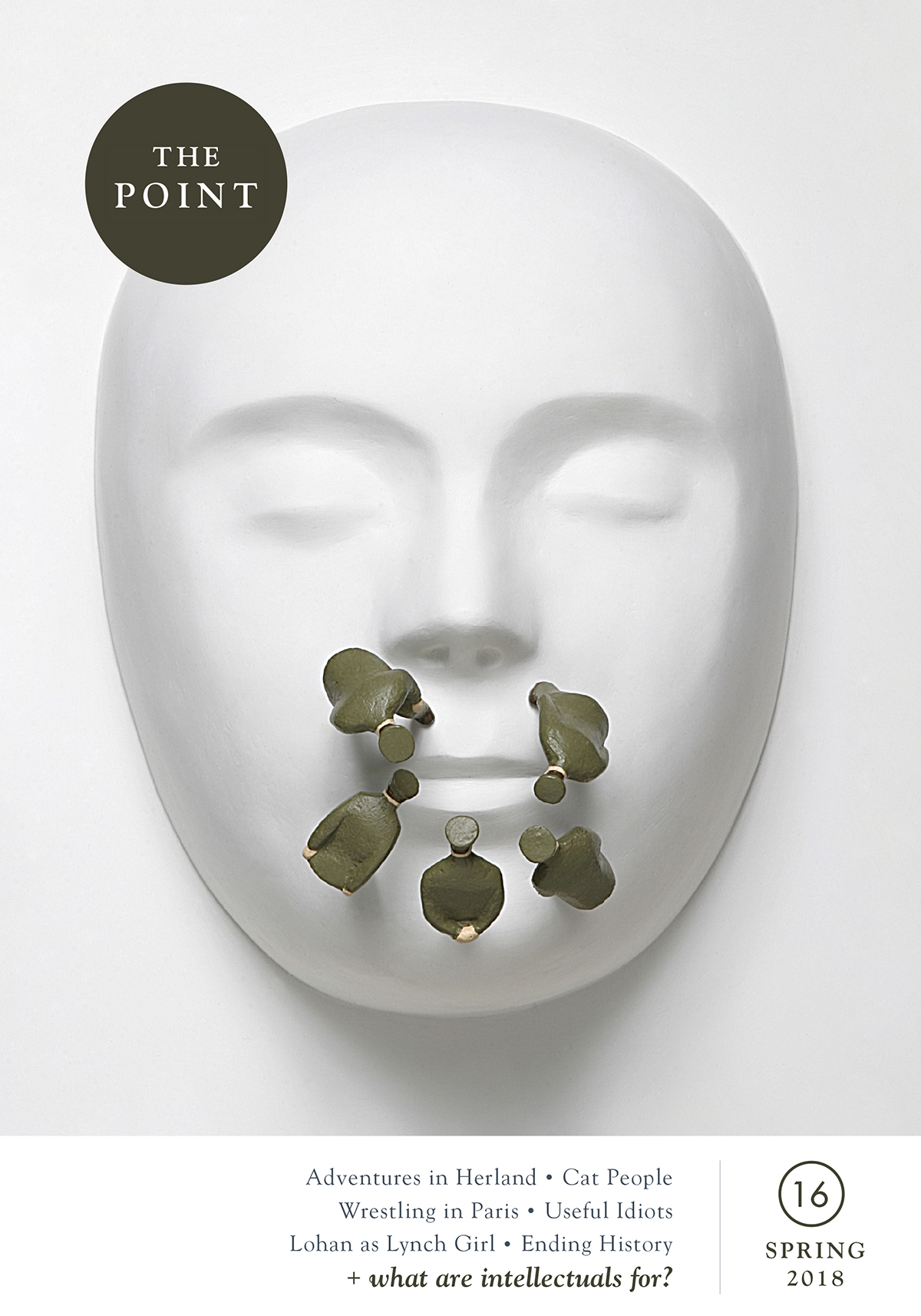The Point 16: What are intellectuals for?
by
multiple authors
(editors)
The Point 16: What are intellectuals for?
by
multiple authors
(editors)
Hansen argues that American prosperity and identity are based on imperialism abroad as much as on racism at home. I agree, yet I have trouble seeing how most Americans prospered from the invasion of Iraq. Instead, I wonder at how much the fraudulent freedom we export abroad resembles the version we extol at home—a freedom that is undercut by economic bondage, by a barely concealed determination to disenfranchise so many.
At the same time, to explain everything through the lens of American power is to explain less. One ends up reflecting back the mirage of American omnipotence instead of the reality of U.S. blundering, blindness and internal dissent, of our inability to address the most basic needs of our own society (gun control, health care, an end to police brutality, economic inequality), let alone to confront global challenges such as climate change. One also risks turning all non-Americans into pawns, vassals and victims. Conspiracy theories that ascribe everything to American power diminish the responsibility of local regimes and elites, and the autonomy of people who have staked their own claim to the United States’ proclaimed principles, challenging it to live up to its rhetoric.

